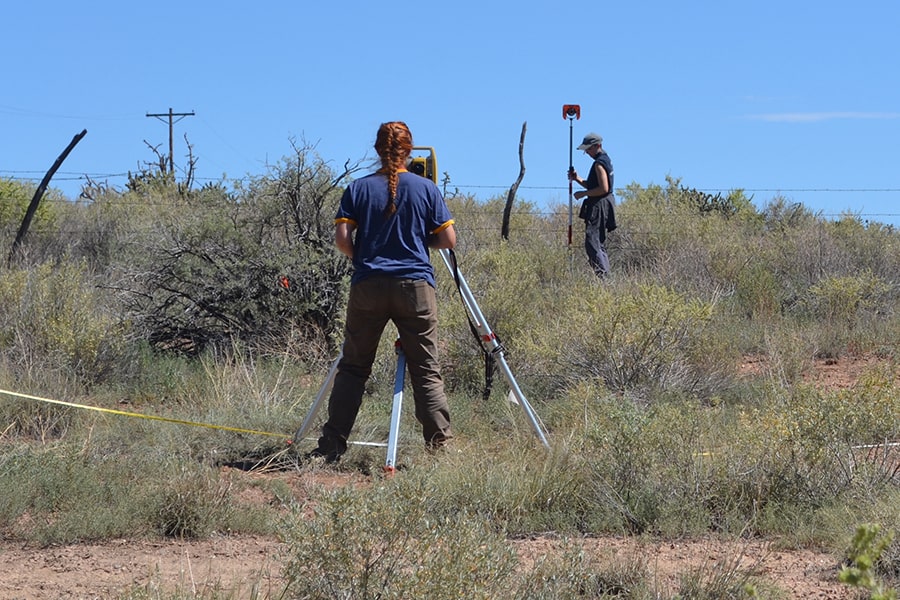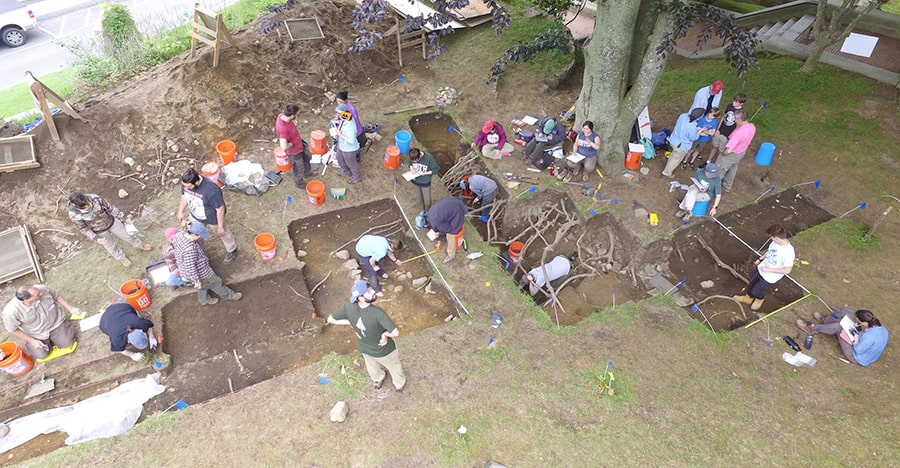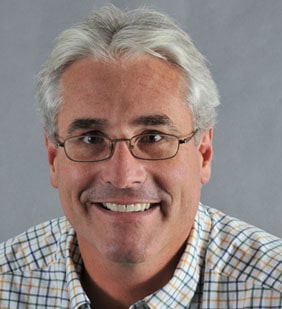- Home
- News
- Recent News
- Looking to the Past to Help Guide the Future
Looking to the Past to Help Guide the Future
The Andrew Fiske Memorial Center for Archaeological Research undertakes a wide variety of projects that support the university’s research, education, and community outreach goals.

The Andrew Fiske Memorial Center for Archaeological Research undertakes a wide variety of projects that support the university’s research, education, and community outreach goals. The center embraces anthropology’s broad interest in the development and diversity of human cultures, using the unique perspective of archaeology to study the historical roots of contemporary social and environmental issues. Our research projects often include close collaboration with tribal governments, heritage museums, and other community partners. The center’s projects are supported by the nation’s most prestigious funding institutions, including the National Science Foundation (NSF), National Endowment for the Humanities (NEH), National Park Service (NPS), and Mellon Foundation, underscoring the center’s reputation as a leader in archaeological research and cultural heritage preservation.
Using anthropological perspectives, multiple center projects have studied sites of past social and cultural change, especially those related to colonialism. In New Mexico, our projects supported by NSF have explored the complex relationships between Spanish and native Pueblo peoples in the 17th century and the development of a regional Spanish-colonial identity in the 18th century. In Plymouth, Massachusetts, projects supported by NEH have expanded the story of the early colonial settlement and the cultural interactions between the native Wampanoag and the English colonists. And in Grafton, Massachusetts, our long-term collaborative project with the Hassanamisco Nipmuc has documented the homestead where five generations of Nipmuc women raised their families and worked to preserve their tribal heritage and autonomy.
Three of our recent projects have studied impacts of climate change and coastal erosion on archaeological sites. In Iceland, a collaborative project with Icelandic archaeologists, funded by NSF, is investigating and documenting a complex Viking-era fishing site threatened by climate change in the Arctic. On Cape Cod, Massachusetts, a collaborative project with NPS evaluated threatened sites on Wellfleet’s Great Island, recording and assessing sites to guide preservation priorities for park planners. Closer to home, a collaborative project with the City of Boston, the Public Archaeology Lab, and the Massachusetts Tribe is recataloguing multiple collections of artifacts from sites on the Harbor Islands. This effort will create accessible artifact catalogs and expand the public understanding of Boston’s Native heritage. It will also provide archaeologists with new details about site chronology and significance, informing the future testing strategy at Harbor Islands sites impacted by climate change.
Much of the center’s funding supports graduate student research, creating hands-on research experiences, promoting experiential learning, and fostering professional development. Our projects fund summer travel to field research sites for archaeological excavations and sample collection. During the academic year the emphasis shifts to the labs, where the artifacts, animal bones, and other samples are cleaned, identified, and catalogued. This laboratory work is typically undertaken by graduate research assistants in UMass Boston’s master’s program in historical archaeology. A master’s degree in archaeology meets national standards for work as a professional archaeologist, and our graduates have successful careers in academia, government, museums, and private cultural resource management companies. In these positions, they apply the skills gained at UMass Boston to promote and protect our country’s archaeological heritage in a way that is responsive to diverse stakeholder communities.
These examples highlight the Fiske Center’s successful implementation of UMass Boston’s goals for holistic student success, impactful research and scholarship, and community collaboration.


Associate Director, Andrew Fiske Memorial Center for Archaeological Research and Adjunct Associate Professor of Anthropology